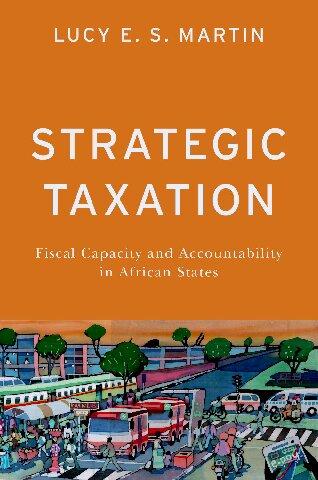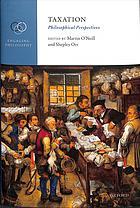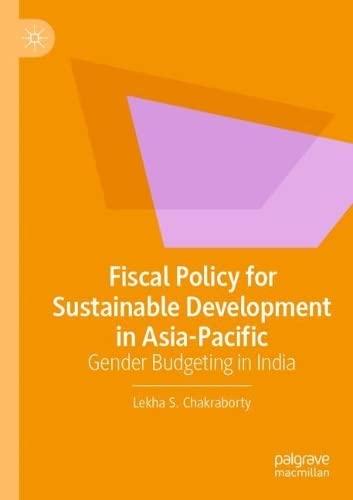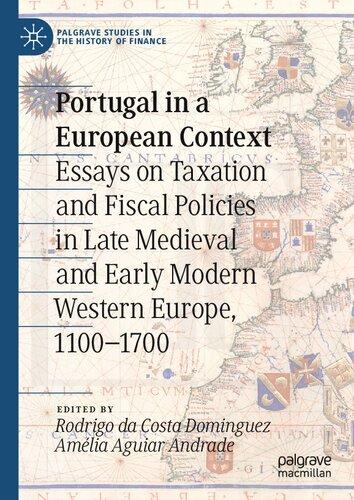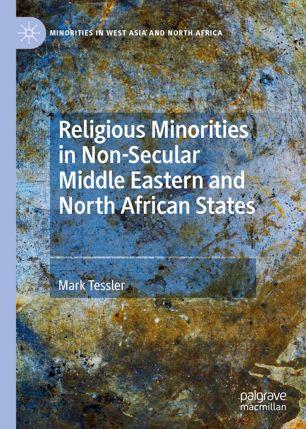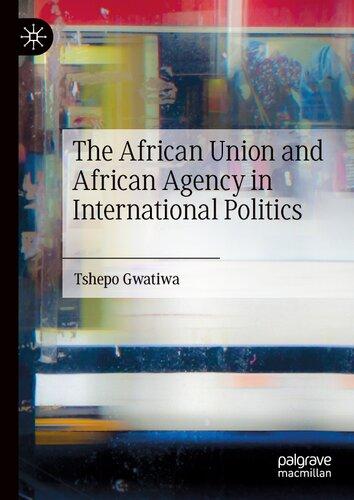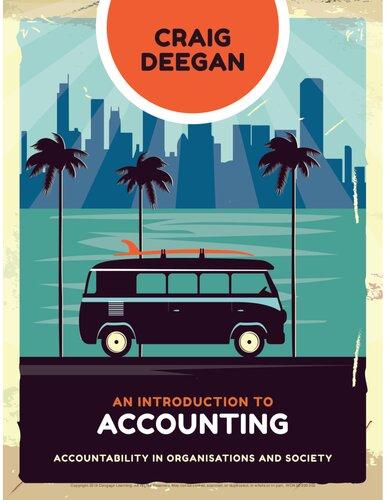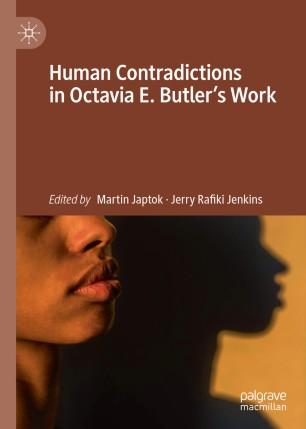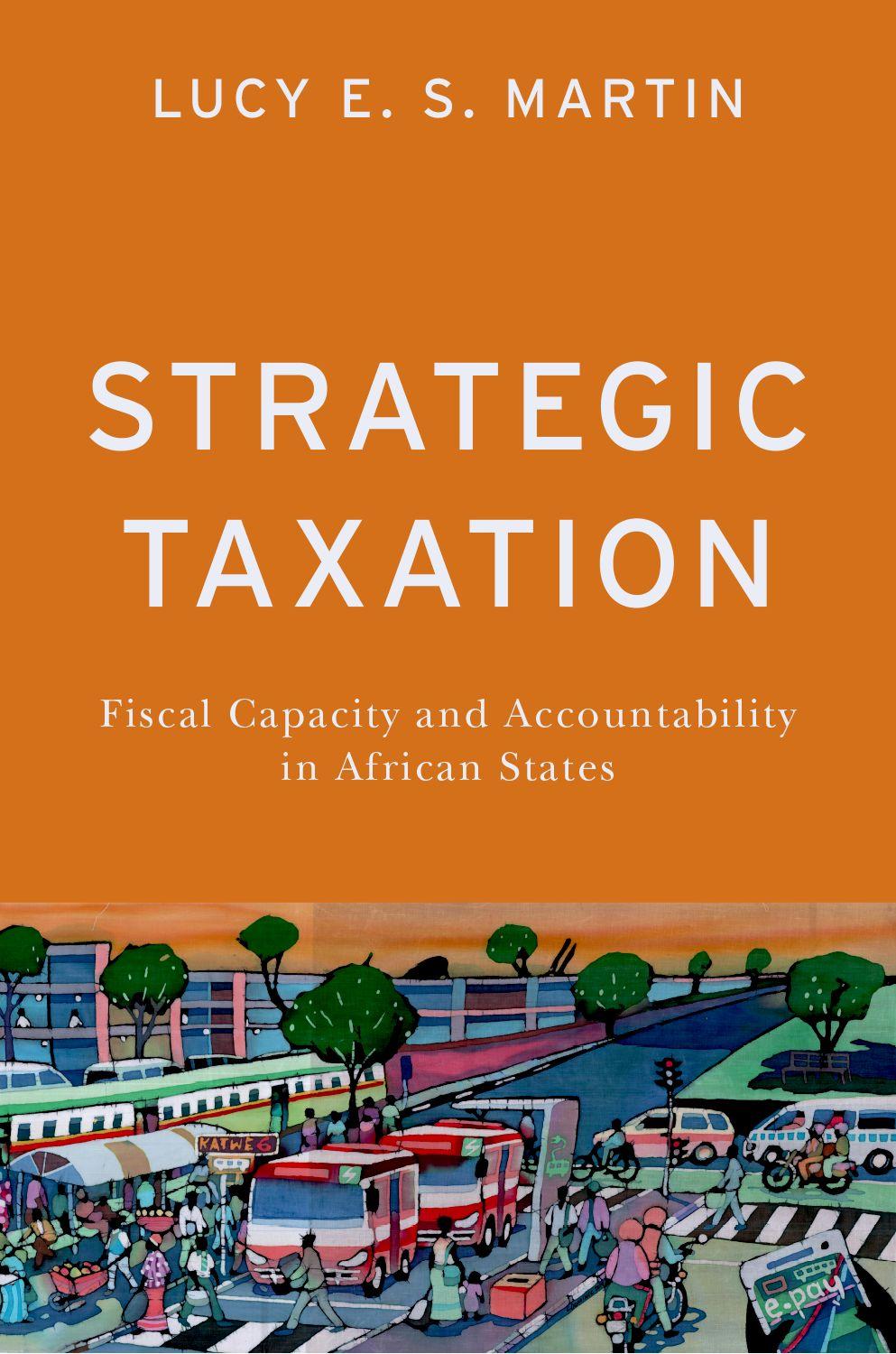Acknowledgments
In2011IspenttwomonthstravelingaroundNorthernUganda,talkingto NGOsandlocalleadersforapotentialdissertationonforeignaid.Overthe courseofthoseinterviews,taxation—anditslack—cameupagainandagain. Itbecameincreasinglyevidentthattaxationinmoderndevelopingcountries, andespeciallyinsub-SaharanAfrica,hadbeenlargelyneglectedbypolitical scientists,andthattaxationwascloselylinkedtogovernancemorebroadly. Thisbooksimplywouldnotexistwithoutthegenerosityofthosewhospoke tomethatyear,bothelectedvillageleadersandcommunityorganization workers,orwithoutthededicationandintelligenceofmyresearchassistant thatyear,EmmanuelOgonya.
Turningmyintuitionsabouttaxationintoafullyformedbooktookover tenyears,severalinterstatemoves,becomingaparent,andsurvivingaglobal pandemic.Icouldnothavefinisheditwithoutthesupportofinnumerable friends,colleagues,mentors,researchcolleagues,andfamily.
ThisprojectbeganduringmytimeasagraduatestudentatYaleUniversity. KennethScheve,ChristopherBlattman,SusanRose-Ackerman,andSusan Stokeswereanabsolutepowerhouseofacommittee.Theyspenthours helpingmetorefinemyideas,developresearchdesigns,andturnavague projectintoaconcreteandpolisheddissertation.Theyhavealsocontinued toprovidesupportandadviceasIturnedthedissertationintothebook. IamalsogratefultothemanyotherYalefacultywhogenerouslygaveme feedbackandsupportthroughoutthedissertationprocess,includingPeter Aronow,KateBaldwin,AlexandreDebs,ThadDunning,GregHuber,Susan Hyde,andJohnRoemer.
DuringgraduateschoolIreceivedsignificanthelpandadvicefroma networkofcolleaguesandadvisorsacrossuniversities.Theseinclude,Eric Dickson,GuyGrossman,MacartanHumphreys,DavidLaitin,DanPosner, MichaelRoss,CyrusSamii,GeorgVanberg,andJeremyWeinstein,allof whomgaveinvaluableadviceatvariousstagesoftheproject.IamalsothankfulforthefeedbackIreceivedonpartsofthisprojectattheLeitnerWorkshop atYale,WGAPE,CAPERS,MPSA,andAPSA,aswellasconferencesat PrincetonUniversity,DukeUniversity,andHarvardUniversity.
PartsofthisbookwerecompletedduringafellowshipatPrinceton University’sNiehausCenterforGlobalizationandGovernance.This includedhostingabookconferenceforanearlierversionofthismanuscript. ThankyoutoHelenMilnerandPatTrinityforsupportingandorganizing thisconference.IameternallygratefultoGuyGrossman,KimuliKasara, LauraPaler,andMichaelRossforcarefullyreadingandconsideringmy manuscript,andforgivingmetheinsightandadviceneededtomakeit strongerandmorecoherent.
ThisbookwascompletedatUNC–ChapelHill,whichisperhapsthebest placeinthecountrytobeanassistantprofessor.Thankyoutomywonderful colleaguesfortheirsupportandadvice,especiallymycurrentandformer departmentchairs,MarkCrescenziandEvelyneHuber.
ThisbookdrawsextensivelyondatacollectedinUganda.Thisdata collectionwaspossibleduetothelargeteamofenumeratorsandresearch assistantsatInnovationsforPovertyActioninUganda,aswellasthe fantasticsupportstaff.EspecialthankstoEstherAganyira,DeanBuruhan, RobertKalule,VianneyMbonigaba,JoeNdumia,EzraRwakazooba,and GyagendaSolomon,withoutwhosehardworkandunlimitedpatiencethis projectwouldnothavebeenpossible.OtherdatawerecollectedincollaborationwithIgnosiResearchinUganda.ThankyoutoIvanSenkubuge, EzraRwakazooba,VivienneTibaberwa,andDenisBaliddawafortheirwork onthisproject,alongwithalargeteamofenumerators,translators,and supportstaff.
IamalsogratefultomysuperbUNCresearchassistants,whoworkedon multipleiterationsofdataanalysisandliteraturereviews.ThankstoTyler Ditmore,SimonHoellerbauer,EricParajon,AyelenVanegas,andMitchell Watkins.
Partsofthisbookdrawonco-authoredwork.SpecialthankstoAdam Dynes,andtoBrandondelaCuesta,HelenMilner,andDanielNielsonfor allowingmetoincorporateourjointworkintothisbook.Ithasbeenatrue pleasureworkingwithyouall.
DatacollectionforthisbookwasfundedinpartbytheLeitnerProgram atYaleUniversity,theYaleLindsayFellowship,theMacMillanCenterat Yale,PrincetonUniversity,andaVanguardCharitableTrust.Thankyoufor yoursupport.
AtOxfordUniversityPress,Iamgratefultomyeditor,DavidMcBride, myprojecteditor,SarahEbel,andmyproductionmanager,ThomasDeva. Twoanonymousreviewersprovidedincrediblythoughtful,constructive,
anddetailedfeedbackthatimprovedthebook’scontribution,clarity,and statisticalrigor.
Ibecameapoliticalscientistinlargepartduetotheoutstandingteaching andmentorshipIreceivedasanundergraduateatKenyonCollege.Fred Baumann,PamelaCamerra-Rowe,JohnElliot,LaurieFinke,JoeKlesner, MarlaKohlman,DavidRowe,andSteveVanHoldehelpedmetodevelop aloveofrigorous,thoughtfulresearch.SpecialthanksareduetoCarol Schumacher,forteachingmehowtowriteproofs.
Finally,Iwouldliketothankmyfamily.Myparentsforcreatingafamily environmentinwhicheducationwasvaluedaboveallotherpursuits;for lovingandraisingme.Mysister,VioletMartin,forpushingmeassiblingsare wonttodo.Tomyhusband,CameronBallard-Rosa,whohasbeennotonly alovingandequalpartnerforover15years,buthasalsohelpedmetothink throughknottyproblemsanddevelopmyideas.Andtomyson,Michael,for bringingunmeasurablejoyintomylife.
Introduction
Byalmostanymetric,Africaisbooming.AverageGDPpercapita,which waslargelystagnantinthe1980sand1990s,hasgrownfrom$2,100in2000 toover$4,000today.1 In2000,only15Africancountrieshadreachedlowerorupper-middleincomestatus;by2019thishadincreasedto39.While theCOVID-19crisishasreducedsomeofthesegains,therearehopesfor arebound.Politically,too,therehasbeenprogress.Elevencountrieshave institutedmulti-partyelectionssince2000,andelectionshavebecomemore freeandfairinmanycountries.Citizenshavesuccessfullyfoughtelectionfixing,ashappenedinMalawi,orforcedlong-termautocratsoutofoffice,as inBurkinaFaso.
Yet,insomeareasofstatedevelopmentAfricancountriesshowlittle improvement.Incontrasttotheprogresscitedabove,somecountries,like Uganda,haveseenanincreaseinrepressionandmoreauthoritarianrule. Moregenerally,TransparencyInternational’sCorruptionPerceptionsIndex showsnoimprovementforAfricancountries,onaverage,between2000and 2021.Statebureaucraciesareweakandunderstaffed.Crucially,government revenuesarelagging.ThefractionofGDPAfricangovernmentscollect intaxeshasincreasedonlyslightlyin40years.Ithoveredaround11% throughoutthe1980sand1990s,thensawslowandintermittentprogress to14%or15%inrecentyears(ICTD/UNU-WIDER2020).2
Withoutmoretaxation,itwillbedifficultforAfricancountriestocontinuetogrow.Improvinghealthandeducationsystemswillbeneededto supportahealthy,educatedworkforce.Thereisacriticalneedformore investment,too,ininfrastructurelikeroads,electricity,andinternet,to supportgrowingeconomies.Foreignaidissimplynotsufficienttofillthe financinggap.RisingdebtburdensinthewakeofCOVID-19makedomestic revenuesevenmoreimportantforavoidingdefaultsliketherecentone inGhana.Ultimately,sustainabledevelopmentwillrequiremoredomestic revenuefromtaxation.
1 NumbersaretakenfromtheWorldBank(2020),PPPmeasure.Incontrast,averageGDPper capitaincreasedbyonlyUS$90between1980and2000.
2 Numbersfromrecentyearsarehardtointerpretduetothesignificanteconomicshockofthe COVID-19pandemic.
HigherfiscalcapacitycouldpotentiallyhelpsolvemanyAfricancountries’ governanceproblems,aswell.Europeanstatedevelopment,includingthe developmentofrepresentativeinstitutions,wasdriveninpartbyrulers’ revenuedemands(Tilly1992).Theneedtoraisetaxesforcedmonarchs tobargainwithwealthyelites,grantingpolicyconcessionsorpolitical representationinreturnforpayingtaxes(NorthandWeingast1989; BatesandLien1985).Revenuedemandsalsoledtothedevelopmentof aprofessionalbureaucracy,withpositivebenefitsforoveralllevelsofstate capacityandprofessionalization(Moore2004).Thissuggeststhat,ifAfrican governmentsexpandedtaxation,itcouldhavepositivespilloversforother areasofstatedevelopment.
So,whydoesfiscalcapacityremainlowinsomanyAfricancountries?
Standardtheoriesoftaxationtendtoviewgovernmentsasrevenuemaximizing,soascountriesbecomericher,whyaregovernmentsnottaking moreofthisnewwealthfortheirbudgets?Inthisbook,Iarguethatexisting theoriesofstatedevelopment—especiallythosebasedontheEuropean experience—areinsufficienttoexplainthedynamicsoftaxationandfiscal capacityinmoderndevelopingstates.InearlymodernEurope,theexigenciesofwarandnationaldefensecreatedapressingneedforrevenue,and statesthatsurvivedwerethosethatcoulddevelopsteadysourcesofrevenue andstrongbureaucracies.Taxes,andstrongstates,developedbecausethe alternativewasoblivion.Statedevelopmentlooksverydifferenttoday,especiallyinthepost-colonialstatesofsub-SaharanAfrica.Thisbookdevelopsa newtheorytoexplainwhymoderndevelopingcountriesmaysystematically under-investinfiscalcapacity,andwhatwillbeneededtochangethis.
1.1WhatMakesTaxationSpecial?
Governmentscanraiserevenuefromanumberofsources.Thesearetypicallydividedinto“unearned”revenues—likenaturalresourcesandforeign aid—and“earned”resources,namelytaxation.Borrowingprovidesathird route.Thisbookfollowsalonglineofresearcharguingthattaxationplaysa special,outsizedroleinthefunctioningofthestate.AsSchumpeterfamously wrote(quotingRudolfGoldscheid),“thebudgetistheskeletonofthestate, strippedofallmisleadingideologies”(Schumpeter1991).
Relativetootherrevenuessources,taxationdiffersalongtwodimensions thatgrantititsspecialstatus.First,collectingtaxestypicallyrequiresmore
statecapacitythancollectingothertypesofrevenue.Receivingforeignaid requiresalmostnostatecapacity—infact,itiscountrieswithlowcapacity whotypicallyreceivethemostaidmoney.Donorstypicallyrequiresome kindsofsystemsinplacetomonitorandaudithowfundsarespent,but theserequirelittleinformationaboutactualcitizens.Naturalresourcerents mayrequireslightlymorecapacityinordertomonitorextraction,but isstillpossiblewhenstatecapacityislow.Evenrebelgroupsareableto extractsignificantresourcerents(SánchezDeLaSierra2020).Incontrast, governmentsneeddetailedinformationoncitizens,andtheirsourcesof income,inordertoimplementmanyformsoftaxation.Oncegovernments havethisinformation,itcanhavepositiveeffectsonotherareasofthe bureaucracy,asdetailedeconomicanddemographicdatacanbeusedto planpublicservicesorprofessionalizeotherareasofthebureaucracy(Moore 2004;Bräutigam,Fjeldstad,andMoore2008).
Second,taxationdiffersintheextenttowhichitis earned.Whileaid andresourcerentsareoftenconsidered“windfalls,”masstaxationcreatesa sustainedpointofcontactbetweencitizensandtheirgovernments.AsIshow inthisbook,thishassignificantimplicationsforthedemandsthesecitizens willplaceontheirleaders.Taxedcitizenswillrequiremorepublicgoodsand services,andpotentiallyevenmoredemocraticformsofgovernment,and thishasthepotentialtodrasticallyreshapethestate.
Combined,thesedifferencessuggestthattaxationshouldadvancestate development,whilenon-earnedrevenueslikeaidandoilwillhavemuch smallerorevennegativeeffects—evenwhenaidisexpresslydirectedtowards suchdevelopment.Avastpoliticaleconomyliteraturebacksthisup.Work ontheresourcecursesuggeststhataccesstooilandothernaturalresources isassociatedwithpoorgovernance(Ross1999,2001;Mehlum,Moene,and Torvik2006;Ross2012;Sandbu2012).Muchoftheresearchonforeign aidsuggeststhatittoomayleadtohighercorruptionorhurtthequality ofdemocracy(BräutigamandKnack2004;Morrison2009,2015;Djankov etal.2008).However,thisviewisnotuniversal:otherscholarshaveargued that,especiallyinthepost-ColdWarperiod,aidisnotsubjecttotheresource curse(Bermeo2015;Dunning2005).
Incontrast,taxationisassociatedwithhigherlevelsofdemocracy(Ross 2004)andlowercorruption(BaskaranandBigsten2013).Prichard(2015) findssimilarpatternsforabroadersetofcountriesusingupdateddata. Timmons(2005)findslinksbetweenthetaxbaseandwhobenefitsfrom publicpolicy.Atthesubnationallevel,localgovernmentsthatrelyonown
revenuesasopposedtocentraltransfersarehavelowercorruptionand providemorepublicgoods(Gadenne2017;Brolloetal.2013;Fismanand Gatti2002).
Thus,understandingtaxationiscriticaltounderstandingstatedevelopment.Andyetwestilllackastrongunderstandingofwhysomany developingcountriesarereluctanttoincreasetaxationdespiteadesperate needforrevenue.SayingsimplythatmanyAfricancountries’citizensare toopoortopaytaxesdoesn’tholdup.Whileformallevelsofpovertydo remainhighinmanyAfricanstates,itdoesnotfollowthatthereisnotax base.Whenonetalks(asIhavedoneinbothUgandaandMalawi)withsmall businessownersandaveragecitizens,manyexpressastrongwillingnessto paymoreintaxes,providedthatthegovernmentspendsthemoneywisely. Evenamongpoorercountries,thereissignificantvariationintheability andwillingnessofgovernmentstotaxcitizens.Povertyisnotacompelling explanation.Similarly,argumentsthatthepost-colonialbordersofAfrican states,combinedwithalackofinterstatewar,makeslowstatecapacity forordained(Herbst2000)arelikewiseinsufficient.AsIdiscussmorein subsequentchapters,countriescanfaceexistentialthreatsandastrongneed fortaxationevenwhenbordersarefixed.Patternsoftaxationalsodonot reflectthetypeofgeography.Evenstateswithsimilargeographieshavea widerangeoftaxextraction.
1.2ANewTheoryofTaxationandStatementDevelopment
How,then,shouldwethinkabouttaxationandstatedevelopmentinmodern developingcountries?Toanswerthisquestion,Iseparatethisbook’stheory intotwoparts.First,Iarguethattaxationfundamentallychangescitizenstaterelations,leadingcitizenstomakemoredemandsontheirgovernment. Second,Iexaminehowthisaffectsthewillingnessofgovernmentstotax. Ishowthatinsomecasestheaccountabilityeffectsoftaxationresultina paradox:iftaxationincreasesaccountability,governmentswillavoidtaxing citizensinordertominimizethecitizenpressurestheyface.
Thefirstpartofthetheoryexamineshowtheactofpayingtaxesaffects citizens’abilityandwillingnesstoholdleadersaccountablebypunishing poorperformance.Iarguethattaxation,byremovingearnedincomefrom citizens,inducesasenseoflossintaxpayers.Eagertorecoverthelostincome, citizenscaremoreaboutgovernmentspendingandincreasethedemands
theyplaceonleaders.Thismakesthemmoreupsetwhendemandsarenot met,andthereforemorelikelytopunishleadersthroughvoting,protests, andotherformsofpoliticalaction.Extensionstothetheoryshowthatthis logicholdsevenwhencitizensfacebarrierstoholdingofficialsaccountable, orwhencitizensandgovernmentsinteractovermanyperiods.Thekey implicationofthetheoryisthat,whencitizensaretaxed,theywillbemore willingtopunishwrongdoingbyleaders.Thiswrongdoingcouldtakethe formofpoorpublicservices,orhighlevelsofrent-seeking.Fundamentally, taxationincreasesthedemandscitizensmakeoftheirleaders.
Thesecondpartofthetheorytakesasgiventhattaxationincreasescitizens’demands,andexamineshowthiswillaffectwhenandhowgovernmentstaxcitizens.Asastartingpoint,Iassumethatgovernmentsare rentmaximizing.Thisissubtlydifferentthanthestandardassumptionthat governmentsare revenuemaximizing (Levi1989).Thekeydifferenceis thatarent-maximizinggovernmentwishestoextractasmuchrevenueas possibleonlytotheextentthatitallowsthemtoincreasespendingfortheir ownprioritiesandconsumption.Rulersmay,inthisformulation,notwish toincreaserevenueifitdoesnoteitherincreasetheirshort-termrentsor prolongtheirtenureinoffice(thussecuringlong-termaccesstorents).This canoccurifleadersdonotgetmuch(orany!)directutilityfromrevenues theymustspendoncitizens’priorities,insteadhavingtheirownpreferences. Thesecouldbespendingonprivateconsumptionthroughembezzlement, orspendinginwaysthatmaintaintheirpoliticalsupportinthemedium-or long-term.
Whiletherent-seekingassumptionmayseemintuitiveforautocrats,itis notastandardassumptionfordemocraticgovernments,whicharetypically assumedtorepresentcitizens’preferences(seee.g.(AcemogluandRobinson 2006)).However,manynewdemocraciessimplydonotfitthisapproach.In anumberofcases,particularlyinsub-SaharanAfrica,formaltransitionsto multi-partyelectionshavenotresultedinchangestotheexecutive.President MuseveniofUgandahassurvivedtheonsetofmulti-partypolitics,ashas PaulBiyainCameroonandexecutivesinanumberofothercountries. Evenwhentherehasbeenregimechangeandatheoreticalshifttomore democracy,thenewrulersareoftenformermembersoftherulingparty, anditisnotclearthattheyhavepreferencesthatareactuallymoreinline withcitizensthantheincumbentstheydefeatedorousted.Forexample,after RobertMugabewasoustedinacoup,aformermemberofhisrulingcoalitionbecamepresidentofZimbabwe.InBurkinaFaso,themainopposition
toPresidentBlaiseCompaoréwascomprisedbyformermembersofhis rulingcoalition.Thisisborneoutincontinuinghighlevelsofcorruption andpatronageinmanyareas,evenwhenautocratslosepower.Ittherefore seemsreasonabletoassumethatrulersandcitizensinthesecontextsmay havedifferentspendingpriorities,andthatrulerscareprimarilyaboutrent extraction.
Giventherent-maximizationassumption,Idevelopaformalmodelin whichagovernmentconsiderstheshort-andlong-termbenefitsandcosts oftaxation,anddecideswhetheritwishestotax.Themodelfirstconsiders autocraciesinwhichcitizenscannotremovetheleaderfromoffice,and thenademocracyinwhichcitizenshavemorepower.Ifagovernment doeschoosetotax,itmustchoosewhethertodosothroughcoercionor taxbargaining.Coercivetaxationusesthepowerofthestatetomonitor citizensandenforcepenaltiesfornon-compliance.Itiscostlyforrulers,but ensuresthatallcitizenspaythetax.Undertaxbargaining,thegovernment negotiateswithcitizensandagreestoprovidepolicyconcessions(here, higherpublicgoodsprovision)ifcitizenspaythetaxwithoutcoercion(Levi 1989).Thisreducesthecostsofcollection,butcommitsrulerstospending concessionsinthefuture.Ifagovernmentchoosestotax,itcanleadtohigher accountability(measuredbythedegreeofrent-seeking)intwoways.First, ifthegovernmentbargainswithcitizenssuccessfully,itwillagreetoprovide citizenswithacertainleveloftheirdesiredpublicgoodineachperiod. Thiswillimprovepublicgoodsprovisionrelativetotherevenuesystemthat wouldexistwithoutthebargain.Evenifbargainingcannotbesustained,it isstillpossiblefortaxationtoimproveaccountabilityiftaxationmakescitizensmorelikelytopunishpoorgovernmentperformance.However,while bargaining(wherecitizens’leveragecomesfromtheabilitytowithholdtax revenue)canoccurinautocraciesanddemocracies,thesecondmechanism requirescitizenstohaveenoughpoliticalfreedomthattheycanuseprotests orelectionstosanctionpoorperformanceundertaxation.
Akeyfindingofthisbookisthatwhentaxationincreasesaccountability demands,governmentsmayrespondbydecreasingtaxation,ratherthan improvingaccountability.And,thisismorelikelyunderdemocracythan autocracy.Thisoccursbecausedemocracymakestaxationlessimportant forextractingaccountability.Whiledemocratizationgivescitizensacredible waytopunishrulers—thusmakingitmorelikelythatrulerskeeptax bargains—italsogivescitizensamethodofholdinggovernmentsaccountableevenwhentheyarenotpayingtaxes.Thiseffectivelymakestaxbargains
lessvaluabletocitizens,astheycanextractsomeconcessionsfromgovernmentevenwhentaxationiszero.Whilemanyearlydemocracieswere adirectresultoftaxation,inmanymoderncasestheyaremorelikelytobe theresultofcomplexprocessesthatareheavilyinfluencedbyinternational norms:itisnowcredibleforcitizenstokeepdemocracybutnottaxation. Thus,democracymakesitmorelikelythatleaderskeepataxbargain,butless likelythatcitizenswill;dependingonwhicheffectpredominates,democracy couldthereforeincreaseordecreasetaxation.
Mytheorypredictsthatwhenstatecapacityishigh,democracywill tendtoincreasetaxation;theoppositewillholdinlow-capacitystates. Thisisbecausepublicgoodsareexpensivetoproviderelativetorevenues inlow-income,low-capacitystates,andsocitizensarelesslikelytovalue taxation.Thus,inmoderndevelopingcountries,whicharetypicallylow capacity,therewillbefewincentivestoinvestinhigherfiscalcapacity. Inhigh-capacitystates,governmentswillbebetterabletomeetcitizens’ demandswithavailablerevenues,andthiswillmaketaxationmorelikely underdemocracy.
Thisbookalsoprovidesnewinsightsonwhentaxationislikelytolead tomoreaccountablegovernmentsintheformoflowerrent-seekingby politicians.Likeothertheoriesoftaxationandaccountability,Iexpectthat higherlevelsoftaxationwillgenerallybeassociatedwithlowerlevelsof governmentcorruptionandmismanagement.However,mytheoryprovides additionalimplicationsforwhenthisrelationshipislikelytohold,andwhen itwillbestrongest.Ishowthatwhiletaxationcanleadtobettergovernance inbothautocraciesanddemocracies,weshouldexpectthisrelationshipto bestrongerindemocracies.Drawingonco-authoredworkwithBrandonde laCuesta,HelenMilner,andDanielNielson,Ialsoshowthatdirecttaxesare morelikelytogenerateaccountabilitydividendsthanindirecttaxes.
1.2.1EmpiricalApproach
Thisbookreliesonamixed-methodsapproachtobetterunderstandthe linkagesbetweentaxation,democracy,andgoodgovernance.Thetheory introducedabove,anddevelopedoverthecourseofthisbook,isbasedon overayearofresearchconductedinUganda.Thisresearchincludednot onlytheexperimentsdescribedbelowbutalsoextensiveinterviewsand focusgroupswithcitizens,politicians,bureaucrats,andnon-governmental
organizations(NGOs).Isupplementedthisworkwithadditionalqualitative researchanddatacollectioninMalawiandGhana.WhileIdrawmost heavilyonthequalitativeresearchinChapter7,itwascriticaltobuilding myunderstandingofthepoliticaldynamicssurroundingtaxation.Ialsouse statisticalanalysisofbothexperimentalandobservationaldatatotestthe implicationsofmytheory,andtobetterunderstandthemechanismsatwork.
Totestthefirstpartofmytheory—thattaxationwillleadtohighercitizen demandsongovernment—Iuseamixofexperimentalandobservational data.Toclearlyidentifythecausaleffectoftaxationonpoliticalbehavior, IdevelopedandranasetoflaboratoryexperimentsinUganda.These experimentsallowmetopreciselyisolatetheeffectsoftaxationfromother aspectsofpolitics,andtotestmyproposedloss-aversionmechanismagainst severalalternatives.Toconfirmthattheresultsarenotdrivenbytheabstract natureoftheexperiments,andtoexplorethescopeconditionsofthetheory, IranadditionalexperimentsinbothUgandaandGhana.Ithendrawon Afrobarometersurveydataontaxationandpoliticalactiontoshowthatthe resultsholdoutsideofalabsetting.
Thesecondpartofthetheoryhasanumberofimplications.Iusecrossnationalpaneldatatotesttwokeyimplications.First,Ishowthatdemocracy willonlyleadtohighertaxationwhenstatesaresufficientlyhigh-capacity. Thisfindingissupportedbyadditionaldataonthesizeofthetaxnet inAfricanstates.Second,Ishowthatwhiletaxationcanleadtolower rent-seekinginbothautocraciesanddemocracies,theeffectisstrongerfor democracies,andfordirecttaxes.
Finally,tofurtherexaminehowgovernmentsstructuretaxationtoreduce accountabilitydemands,andhowdemocratizationaffectsthisprocess,Iuse thecaseofUganda.Drawingonoriginalsurveydata,interviewswithgovernmentofficials,andthesecondaryliterature,Iexaminehowgovernment willingnesstotaxvariesacrossdifferentgroupsofcitizensandtaxtypes,and showthatmytheorycanexplainthegovernment’sstrategicchoices.Thecase studiesbalancethecrossnationaldata,testingpiecesofthetheorythatare noteasilyamenabletolarge-Nquantitativeanalysis.
1.3PlanoftheBook
Therestofthebookdevelopsthecoreargumentinmoredetailandprovides extensiveevidenceforthetheory’spredictions.Chapter2setsthestagefor
theargumentbydissectingthedifferencesbetweentheEuropeanexperienceofstateformation,andtheexperienceofmodernAfricancountries. Thechapterfocusesonthreekeydifferences.First,whileEuropeanstates weredrivenbytheexistentialthreatofinterstatewar,modernstatesaremore likelytofaceinternalthreats.Thiscanalterrevenueincentivessignificantly, especiallyifraisingtaxescancreatemoredomesticopposition.Second,while earlyEuropeanstateshadlimitedaccesstonon-taxrevenues,modernstates haveseveralalternativesourcesofrevenueavailable,inparticularforeignaid andresourcerents.These“non-earned”resourcesreducetheneedfortaxes andallowstatestobemorestrategicinhowandwhentheyrelyontaxation. Finally,whilethedevelopmentofrepresentativegovernmentinEuropewas oftenadirectresultofrulers’revenueneeds,thislinkissignificantlyweaker inmodernstates.ThewaveofAfricandemocratizationsinthe1990swas drivenbyamixofdomesticandinternationalfactorsthatoftenhadlittle relationtotaxation.Critically,Africanstatestypicallydemocratizewhen statecapacityisstilllow,whileinEuropedemocratizationhappenedfurther alongineconomicandstatedevelopment.Combined,thesedifferences highlighttheneedtoreviseourunderstandingoftherelationshipbetween taxation,state-building,anddemocracy.
Chapter3introducesanewtheorytoexplainwhyandhowtaxation increasestheaccountabilitypressuresgovernmentsface.Itdevelopsthe argumentintroducedaboveinmoredetail.Iarguethatcitizensexpectto receivetheirearnedincome,andthattaxationinducesasenseofloss.Theoriesoflossaversionimplythat,whenindividualsareintherealmoflosses, theirutilityfunctionsaremoresensitivetochanges.Weshouldtherefore expectthatcitizenscaremoreaboutthelevelofpublicgoodsprovided, andwillbemoreupsetifgovernmentmisspendstaxdollars.Ifcitizens’ willingnesstoengageinpoliticalactionslikevotingorprotestingislinkedto thisperceptionoflossesandthenegativeemotionstheycangeneratethen taxedcitizensshouldbemorelikelythanuntaxedcitizenstodemandbetter performancefromleaders,andtotakeactionwhendissatisfied.Thechapter appendixpresentstheformalmodelonwhichthechapterisbased.
Chapter4showshowgovernmentincentivestotaxareaffectedwhen taxationincreasesaccountabilitypressures.Idevelopaformalmodelof taxationinwhichagovernment,whocaresprimarilyaboutrentextraction, mustdecidewhethertotaxagroupofcitizens.Ifitdoestax,itmustdecide betweenusingcoercionandengagingintaxbargaining.Thegovernmentand citizensthenengageinaninfinitelyrepeatedgame.Ideveloptwoversionsof
themodel.Inthefirst,therearenoelectionsandsocitizens’onlyleverageon thegovernmentcomesfromtheirabilityinthebargaininggametowithhold taxrevenues.Ithenintroduceelections,andexaminehowtheequilibriaare affectedwhencitizenscanvotealeaderoutofoffice.Themodelproduces newpredictionsregardingwhenandhowgovernmentsarelikelytotax.Ifind thatwhiletaxationcanleadtohigheraccountability,thisisnotalwaysthe case.Thereareconditionsunderwhichgovernmentswillprefershort-term extractionandsubsequentelectorallossestoprovidingcitizenswithhigher publicgoodsprovision.Therearealsocaseswhereleadersaresimplywilling toforgotaxrevenuesifdoingsolowerstheaccountabilitydemandstheyface. Critically,Ifindthatwhiledemocracycanmaketaxationmoresustainable undercertainconditions,itcanalsohaveanegativeeffectonbothcoercive taxationandtaxbargaining,leadingtolowertaxationoverall.Themodel alsoreproducesmanyexistingfindingsfromthetaxbargainingliterature— suchastheimportanceofthegovernment’sdiscountrateandthenecessity ofgainsfromtradefortaxbargainingtobesustained.
Chapter5teststhemicro-foundationaltheorydevelopedinChapter3.To isolatetheeffectoftaxationonwillingnesstopunishleaders,Iintroducea setoflaboratory-in-the-fieldexperiments,conductedinUganda.Theexperimentsshowthatarandomizedtreatmentinwhichcitizensloserealmoney toasimulatedtaxincreaseswillingnesstopunishlowtransfersfromaleader, evenwhenpunishmentiscostlyandhasnoeconomicbenefit.Qualitative data,combinedwithsurveyresults,showsthatrespondentsdidtreatthe labexperimentsassimulatingtaxationandpoliticalengagement.Ithen useadditionalexperimentstoshowthattheresultscannotbeattributed toalternativemechanismssuchasfairnessnorms,andthatlossesdodrive willingnesstopunish.Thelabexperimentsalsoallowmetodocument that,aspredictedbythetheory,individualsdogetexpressive(i.e.noneconomic)benefitsfrompunishingleaders.Extensionsoftheexperiments showthattheeffectoftaxationpersists,andevenincreases,whenthere areadditionalbarrierstopunishment.Additionalexperimentsshowthat taxationismostlikelytogeneratecitizenaccountabilitypressuresforvisible taxes,andthatindirectconsumertaxesaretypicallynotvisibletocitizens. Finally,toprovideexternalvalidityforthelabfindings,IuseAfrobarometer surveydatafrom31countriestoshowthattaxedcitizensaremorelikely toengageinarangeofpoliticalactions.Combined,thisevidenceprovides strongsupportforthebook’smainassumption:thattaxationincreasesthe accountabilitydemandsleadersfacefromcitizens.
Chapter6teststhepredictionsfromChapter4regardingwhengovernmentswillchoosetotax,andwhendoingsoislikelytoleadtobetter governanceandlowercorruption.Usingacross-nationalpaneldataset,I showthatdemocracyisonlystronglyassociatedwithhighertaxationin higher-incomecountries.Inlow-incomecountries,theeffectisnullor evennegative.Indeed,politicalliberalizationisassociatedwithasignificant averagedecreaseintax-to-GDPratiosinfollowingyears.Ithenusedatafrom Afrobarometertoconstructacross-sectionalmeasureoftaxnetsizeina sampleofAfricanstatesandshowthatthetaxnetissmallerindemocracies.Finally,Ishowthattaxationisassociatedwithlowerrent-seeking,as measuredbycorruption,aspredictedbythemodel.AspredictedIalsofind thattaxationhasamorepronouncedeffectoncorruptionfordemocraciesin whichcitizens’demandscantranslateintopolicymoreeasily.Finally,Ishow thatdirecttaxeshaveastrongerrelationshipwithcorruptionthanindirect taxes,followingtheresultsinChapter5.
Tofurthertestthebook’stheory,Chapter7usesacasestudyoftaxationin Ugandatoshowhowmytheorycanexplainthegovernment’staxdecisions. Uganda’srevenuesystemhasundergonesubstantialchangessinceelections werereintroducedinthe1990s.Asthepoliticalsystemliberalizedbetween 1996and2006,thegovernmenthassignificantlyalteredtaxation.Somenew taxeshavebeenintroduced,whileothershavebeeneliminated.Sometaxes havealsobeenkept,buthavegonefrombeingcoercivetomoreclosely resemblingtaxbargaining.Ishowthattheexpansionofdemocracyledto eliminationofseveralkeyformsoftaxation,aspredictedbythemodel, andthatthecontractionofpoliticalcompetitionhasledtotheintroduction ofnew,oftenunpopular,taxes.Critically,thegovernmenthasconsistently changedthestructureoftaxationtominimizetheaccountabilitydemandsit facesfromcitizens,despitetherevenueshortfallsitfaces.
Chapter8concludes.Itdiscussestheimplicationsofthetheory,and outlinesanagendaforfutureresearch.
1.4Implications
AsAfricancountriesgrow,theywillneedtostrengthengovernmentrevenuesandinfrastructuretosustaingrowthandimprovethelivesofcitizens.Thiswillonlybepossibleifgovernmentsarewilling,andable,to increasetaxation.Yet,fiscalcapacityremainslowinmanycountries.Outside
observersoftenassumethattaxationinAfricaisloweitherbecausemost peoplearetoopoortopaytaxes,orbecausegovernmentslackthecapacity tocollecttaxesefficiently.Thisbookarguesthattheproblemis,atitsheart, apoliticalone.Taxationcreatesnewpressuresongovernments,andleaders willonlytaxiftheyarewillingandabletomeetthosedemandsandconstrain rent-seeking.Otherwise,leaderswillprefertomaintainlowercapacityand revenuesinordertokeepcitizens’demandslow.
Thisbookmakesseveralcontributionstoourunderstandingoftaxation andstatedevelopment.First,itprovidesastrongtheoreticalfoundation forwhen,andhow,taxationwillincreasecitizens’accountabilitydemands. Byapplyinginsightsfrombehavioraleconomics,Ishowthattaxationwill increasethetransferscitizensdemandfromgovernments.Thiscanleadto higherpoliticalengagementwhenthosedemandsarenotmet.Themechanismalsohelpsusunderstandwhentaxationwillhavethiseffect:when taxesarenotvisible,orwhenthecostsofpoliticalactionareprohibitively high,taxationwillhavelittleimpact.WhileItestthistheoryinsub-Saharan Africa,thetheoryitselfisgeneralandshouldapplytotaxpayersinall geographicregions.
Second,thisbookprovidesanewframeworkforanalyzingwhenand howgovernmentswilltaxtheircitizens.Thisframeworkwasdesignedto beapplicabletoawiderangeofpoliticalenvironments.WhileIfocus hereonitspredictionsforlow-capacitystates,itcanalsobeusedtothink throughthelikelyimpactsoftaxationinotherregionsoftheworld.ForsubSaharanAfrica,andlow-incomestatesmoregenerally,thistheoreticalmodel generatesanumberofnovelimplicationsthatexpandourunderstandingof whentaxationissustainable.Mostimportantly,Ishowthattherelationship betweentaxationanddemocracyismorecomplexthanmanytheoriespredict.Whilestandardmedianvotertheoriesarguethatdemocraciesshould taxathigherratesthanautocracies,Iarguethatthiswillonlybethecasefor high-capacitystateswherecitizendemandscanbeefficientlymet.Ifthese conditionsdonothold,thandemocratizationcanleadtolower,nothigher, taxation.Thisbookjoinsotherrecentworkinchallengingthepresumed positivelinkbetweendemocratization,taxation,andstatecapacity.For example,BastiaensandRudra(2018)arguesthatdemocracieswillhave ahardertimereplacingrevenuethatislosttolowertradetaxesduring globalization,andSuryanarayan(2021)arguesthatfranchiseextensionsin Indialeadelitesto“hollowout”thestatetoavoidredistribution.Thisbook makesarelatedbutbroaderargumentaboutfiscalcapacityacrossregime typesmoregenerally.
Thetheoryalsogeneratesanumberofadditionalpredictionsthat,while notexplicitlytestedhere,canhelpusbetterunderstandwhentaxation ispoliticallyfeasible,andwhenitwillleadtolowergovernmentrentseeking.Someofthesereplicateexistingfindingsfromtheliteratureon taxation.Ishowthattaxbargainingwillbemorelikelywhenrulershave longtimehorizons;whencoercivetaxationiscostly;andwhencitizensshare preferencesforapublicgood.However,otherpredictionsarenew.While previousworkhasfocusedontheimportanceoflongtimehorizonsfor leaders,Ishowthatcitizens’timehorizonsarealsoimportant.Ialsoshow thattaxbargainingwillbedifficulttosustainwhenpublicgoodsarerelatively expensivetoproducerelativetotherevenuesraisedthroughtaxation,even whencitizensagreeintheoryonwhichpublicgoodstheywant.
Thefindingspresentedherealsohaveimplicationsforhowtobestbuild stateandfiscalcapacity.Itsuggeststhatpurelyeconomicinterventions,or attemptsatcapacity-buildinginisolation,willlikelybeineffective.Rather, taxationinsub-SaharanAfrica,anddevelopingcountriesmoregenerally, needstobetreatedasapoliticalproblem,notapurelyadministrativeor economicone.3Thisapproachcontributestoabroadershifttowardsviewing statecapacity,notasexogenous,butassomethingthatgovernmentscan— atleastinpart—control.Ifdonorsandgovernmentscanworktogetherto simultaneouslyincreasepublicgoodsandtaxcapacity,andtostrengthen tiesbetweencitizensandleaders,itmaybepossibletogenerateaselfreinforcingequilibriuminwhichastrongfiscalstateiscombinedwithan accountablegovernment.However,thiswillrequireovercominghesitancy ofbothpoliticiansandcitizens.
3 ForworkonpoliticalbarrierstotaxationinLatinAmerica,seeFlores-Macias(2019).
